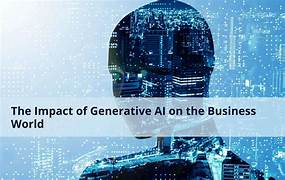Generative AI has emerged as the most dominant trend in data management and analytics, overshadowing all other technologies. This prominence began with the launch of ChatGPT by OpenAI in November 2022, which significantly advanced the capabilities of large language models (LLMs) and demonstrated the transformative potential of generative AI (GenAI) for enterprises.
Generative AI’s impact is profound, particularly in making advanced business intelligence tools accessible to a broader range of employees, not just data scientists and analysts. Before the advent of GenAI, complex data management and analytics platforms required computer science skills, statistical expertise, and extensive data literacy. Generative AI has reduced these barriers, enabling more people to leverage data insights for decision-making.
Another key advantage of generative AI is its ability to greatly enhance efficiency. It can automate time-consuming, repetitive tasks previously performed manually by data engineers and experts, acting as an independent agent in managing data processes.
The landscape of generative AI has evolved rapidly. Following the launch of ChatGPT, a wave of competing LLMs has emerged. Initially, the transformative potential of these technologies was theoretical, but it is now becoming tangible. Companies like Google are developing tools to help customers build and deploy their own generative AI models and applications. Enterprises are increasingly moving from pilot testing to developing and implementing production models.
Generative AI does not operate in isolation. Enterprises are also focusing on complementary aspects such as data quality and governance. Ensuring that the data feeding and training generative AI is reliable is crucial. Additionally, real-time data and automation are essential for making generative AI a proactive technology rather than a reactive one.
Generative AI has highlighted the need for a robust data foundation. The main challenge now is ensuring that enterprise data is trusted, governed, and ready for AI applications. With the rise of multimodal data, enterprises require a unified approach to manage and govern diverse data types effectively.
In addition to generative AI, other significant trends in data management and analytics include the focus on real-time data processing and automation. Integrating generative AI with real-time data streams and automated systems is expected to drive substantial business transformation. By enabling real-time insights and actions, businesses can achieve a level of operational efficiency previously unattainable.
The convergence of these technologies is transforming business operations. Unified and simplified technology stacks, integrating foundational technologies, LLMs, and real-time data platforms, are essential for driving this transformation. The industry is making strides towards creating integrated solutions that support comprehensive data management and analytics.
🔔🔔 Follow us on LinkedIn 🔔🔔












